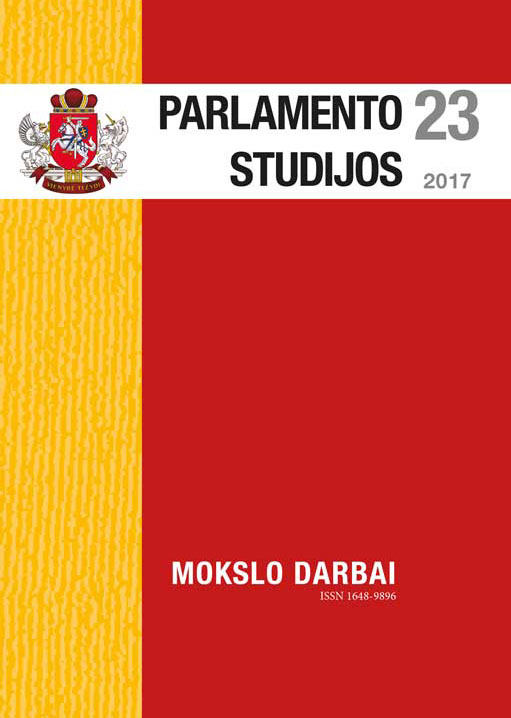Constitutional Relations
DOI:
https://doi.org/10.51740/ps.vi23.78Keywords:
Constitution, jurisprudence of the Constitutional Court, constitutional relations, legal relationsAbstract
The aim of this article is to disclose the specificity of constitutional relations in the context of the modern paradigm of constitutional law and to answer a question whether it is feasible to formulate a legally satisfactory and correct definition of constitutional relations, by embracing all their elements, the analysis of which (particularly, that of an object) is not left out in the article. The legal problems that the article attempts to examine are narrowed down to several relatively independent, although closely interrelated, groups of questions. One of those groups comprises questions arising from the theoretical concept of constitutional relations and the analysis of the contents of these relations. Methodologically following the paradigm of constitutional law as the state’s supreme law, the underlying thesis is formulated, whereby the relations arising from the Constitution are always legal relations (meanwhile, legal relations are, certainly, not always constitutional ones); it is demonstrated that the determination of constitutional relations is legally satisfactory and that it does not require one to define those relations additionally as legal ones. Another group of problem-related questions covers questions that pertain to fundamental rights of a person. In the article it is maintained that fundamental rights, as rights that existed before the state came into being and that are above positive law, do not constitute any “pure“ element of the contents of constitutional relations, or, let alone, any object of these relations, whereas they form a foundation for constitutional relations and are a determinant of these relations and a constitutive element within them, which cannot be detached from the idea of constitutionalism itself. Such a breakdown of the problem-related research issues highlights the premise on which this article is based: relations among a person, associations of persons and a state must be subordinated to the sole supreme law harmonising the interaction of these elements—the Constitution (including jurisprudential law). This means that the said relations in themselves do not extend beyond the Constitution, i.e. beyond the boundaries of its legal power and system of values; therefore, the relations regulated by supreme (formal and jurisprudential) law, though not by ordinary law, are constitutional ones. An attempt to formulate a universal definition of constitutional relations would, nonetheless, produce an incomprehensive, defective or erroneous result. The relations at issue are constitutional ones in abstracto due to the outstanding dimension of highness of their legal regulation. Thus, constitutional relations are the totality of general basic legal relations regulated in a fundamental manner (by “Grundnorm“ and constitutional jurisprudence).








 The metadata of the scholarly journals and publications of the Lithuanian National Martynas Mažvydas Library is distributed by
The metadata of the scholarly journals and publications of the Lithuanian National Martynas Mažvydas Library is distributed by 